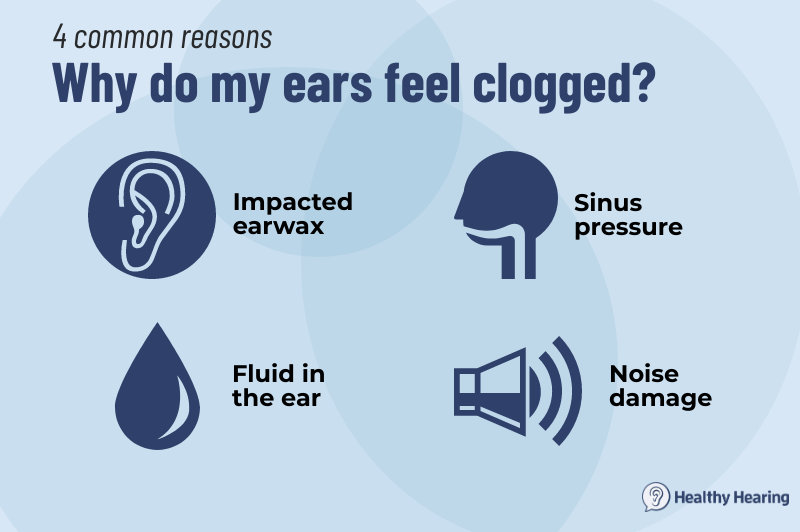|
www.HealthyHearing.com |
Spring allergies and weather changes: Are your ears ready?
Contributed by Joy Victory, managing editor, Healthy Hearing While spring brings longer days and warmer weather, it also brings erratic temperature shifts and seasonal allergies that can affect your ears and hearing. Seasonal allergies and ear congestionWhile most people think of allergy symptoms as sneezing and sinus pressure, it is important to remember that the ears and sinuses are interconnected. Because of this, allergies can also cause stuffy or clogged ears. "People take it for granted that allergies cause sneezing in the nose and itching in the eyes. Yet they seem surprised to learn [that] allergies inevitably affect their ears as well," said Dr. Ronna Fisher, Au.D. 
hearing in several ways. According to the Asthma and Allergy Foundation, seasonal allergies affect between 10 and 30 percent of adults in the U.S. and as many as 40 percent of children, which means as many as 60 million people in the U.S. suffer from not only sneezing, itchy eyes, itchy ears, and sinus pressure, but ear pressure as well. Blame pollenTrees produce more pollen in springtime. For those who are allergic to pollen, their immune system reacts by producing antibodies.Those antibodies release a substance called histamine, which leads to increased mucus production. Unfortunately allergies also cause swelling of the Eustachian tubes, meaning they don’t open as they should. This combination of swelling and increased mucus causes the Eustachian tubes to become clogged. Not only can this result in a feeling of fullness and pressure in the ears, but it can also lead to temporary hearing loss as well. Barometric pressure changes also affect earsIt's not just allergies that can cause ear problems in springtime. The sudden changes in barometric pressure that occur this time of year can make your ears feel clogged as well. When the barometric pressure drops rapidly, the pressure outside your ears goes down before the pressure inside your ears can acclimate. This causes a pressure imbalance, which can lead to sensations of fullness and popping in the ears. Seasonal allergies can worsen these symptoms by causing a narrowing of the Eustachian tubes, making it even harder to equalize pressure. Meniere's diseaseOther ear-related issues can worsen in the spring as well. Those with Meniere’s disease, in particular, can suffer greatly during spring weather changes. Normally fluids in the inner ear circulate. However, problems occur when the overproduction of fluid that characterizes Meniere’s disease actually backs up under the increased pressure and causes the endolymphatic chambers to bulge. The result is discomfort, fullness and pressure along with the potential of other unpleasant symptoms such as: How to cope with stuffy ears
If allergies are causing your clogged ears, over-the-counter antihistamines or decongestants might help relieve your symptoms. Some other remedies that can reduce fluid build-up in the ear include:
Can ear pressure cause permanent hearing loss?While hearing loss from pressure changes is often temporary, continuous pressure in the middle ear could result in permanent hearing loss. If you are experiencing any changes in hearing be sure to see a hearing healthcare professional or otolaryngologist (ENT) to make sure the problem isn’t something more serious. Weather changes impact hearing aidsSpring also brings challenges for those with hearing aids. The rise in allergens and wet weather means paying closer attention to maintenance and upkeep of hearing devices. For example, increased allergens can clog microphone ports in hearing aids, so be sure to clean hearing aids regularly and replace covers of mic ports when necessary.
Along with allergens, spring is accompanied by heat, humidity, rain and extreme temperature changes. Moisture is the enemy of hearing aids, as it can build up in the tubing, damage the microphone and receiver and cause static. In addition, warm weather means more earwax build-up, which can clog the sound openings. Protect your hearing aidsThere are several ways to keep your hearing aids working properly this season.
Get help for your hearing lossIf you're experiencing hearing problems or other ear-related issues, be sure to see a hearing healthcare professional so you can enjoy the beautiful sounds of springtime for years to come. Joy Victory, managing editor, Healthy Hearing
|
Featured clinics near me
Earzlink Hearing Care - Reynoldsburg
7668 Slate Ridge Blvd
Reynoldsburg, OH 43068


Find a clinic
We have more hearing clinic reviews than any other site!



 Joy Victory has extensive experience editing consumer health information. Her training in particular has focused on how to best communicate evidence-based medical guidelines and clinical trial results to the public. She strives to make health content accurate, accessible and engaging to the public.
Joy Victory has extensive experience editing consumer health information. Her training in particular has focused on how to best communicate evidence-based medical guidelines and clinical trial results to the public. She strives to make health content accurate, accessible and engaging to the public.